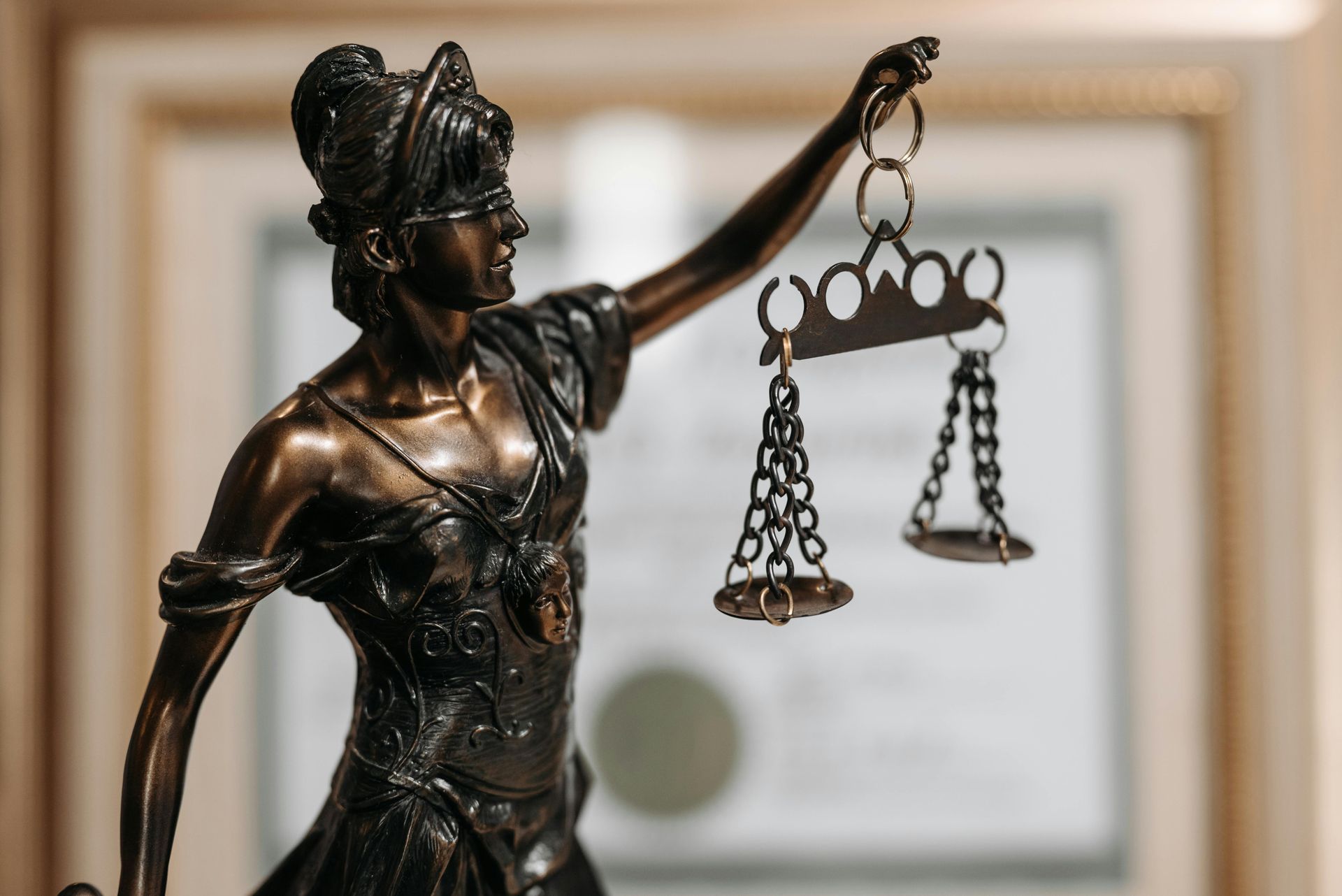The Truth About Personal Injury Lawsuit Timelines—What You Need to Know

If you’ve ever asked yourself, “How long does a personal injury lawsuit take?” you are not alone. Many individuals face mounting medical bills, lost wages, and stress as they navigate the legal system.
Personal injury cases can seem overwhelming, especially when every day brings new challenges and uncertainties. Understanding the timeline can help alleviate some concerns and guide your expectations.
In this guide, we break down each stage of the process so you know what to expect, from the very first steps after an accident to potential trial proceedings if a settlement isn’t reached.
A clear grasp of the process can empower you to make timely decisions and work more effectively with your legal team.
How Long Does a Personal Injury Lawsuit Take? Understanding the Lawsuit Timeline: Claim vs. Lawsuit
It is important to differentiate between a personal injury claim and a formal lawsuit. A claim typically begins when you or your attorney submits an initial complaint to an insurance company.
During this early phase, you compile evidence such as police reports, photos, and medical records to support your account of the incident.
In contrast, a personal injury lawsuit is filed when the insurance company or responsible party fails to offer fair compensation. At that point, the dispute shifts from negotiation to a courtroom setting, often involving at-fault parties if a fair settlement cannot be reached.
This distinction affects both the process and the timeline. When liability is clear and the evidence strong, claims can settle relatively quickly; however, disputed cases may take considerably longer. It is crucial to prove negligence in personal injury cases to seek compensation for damages caused by another party's careless behavior.
Introduction to Injury Claims
When an individual suffers injuries due to someone else’s negligence, they may be entitled to file a personal injury claim. A personal injury claim is a legal process that allows the injured party to seek compensation for their medical expenses, lost wages, and pain and suffering.
The personal injury claim process can be complex and time-consuming, but with the help of an experienced personal injury lawyer, the injured party can navigate the process and receive fair compensation. Most personal injury claims are settled out of court, but some may require a personal injury lawsuit to be filed. In either case, the goal of the personal injury claim is to hold the at-fault party responsible for their actions and secure compensation for the injured party.
The Role of Medical Treatment and Documentation
Receiving prompt medical care is not only critical for your health but also for your legal claim. Immediate care helps create a record that can be vital later in negotiations or at trial.
Medical providers play a crucial role in documenting treatment and expenses, which is essential for substantiating your claim and finalizing settlements. Detailed documentation—from diagnostic tests and treatment plans to follow-up visits—provides concrete evidence of the injuries sustained and the care required.
Accurate and organized medical records strengthen your claim by linking your injuries directly to the incident. This evidence is invaluable when establishing the extent of damages.
Additional supporting details, such as photographs of injuries and witness statements, further bolster your case and can help counter common insurance tactics aimed at minimizing payouts.
Seeking Professional Help
If you have been injured in an accident, it is essential to seek professional help from an experienced personal injury lawyer. A personal injury lawyer can help you understand your rights and options and guide you through the personal injury claim process. They can also help you gather evidence, build a strong case, and negotiate with insurance companies to secure a fair settlement.
Personal injury lawyers work on a contingency fee basis, which means they only receive payment if they win your case. This allows you to focus on your recovery while your lawyer handles the legal process. With the help of an experienced personal injury lawyer, you can ensure that your rights are protected and that you receive the compensation you deserve.
The Step-by-Step Legal Process
The legal journey in personal injury cases generally follows a structured sequence, starting with the initial filing and evidence collection. Obtaining legal counsel is crucial during this phase to navigate the complexities of the legal process effectively.
Once a claim is submitted and the investigation is underway, the process may either lead to settlement negotiations or escalate into litigation if an agreement is not reached. Challenges in establishing liability, such as identifying fault among multiple parties or dealing with ambiguous incidents, can prolong the resolution timeline.
Filing the Claim and Initial Investigation
The first step in your case is to file a personal injury claim. It is crucial to collect and organize evidence at the accident scene, such as photos and documentation of injuries. This involves gathering all pertinent evidence, from accident reports to immediate medical evaluations.
An experienced attorney plays a key role at this juncture by ensuring that every document is in order and all deadlines are met. Their guidance helps lay a strong foundation for your case, especially when dealing with multiple defendants.
During the initial investigation, facts are scrutinized, and both sides work to establish a clear timeline and chain of causation. This phase is crucial for preventing delays in later stages of the process.
Settlement Negotiations: Demand Letters and Evidence Consolidation
Before a case reaches the courtroom, settlement negotiations are often initiated with a demand letter. This document outlines the facts, injuries, and supporting evidence, then formally requests fair compensation, aiming to reach a settlement agreement.
A well-prepared demand letter is key. It consolidates everything from detailed medical records to witness statements, leaving little room for the insurance company or other parties to dispute the claim.
If insurers attempt to delay the process with additional requests or lowball offers, a robust evidence package can prompt more serious negotiations, potentially resolving the matter without resorting to litigation.
Navigating Litigation: Discovery, Depositions, and Trial
When settlement negotiations stall or fail, your case moves into litigation. A neutral third party often plays a crucial role in mediation, helping both parties settle their case.
The discovery phase begins, during which both parties exchange documents and evidence. Depositions become a vital part of this stage. Witnesses—including accident victims, medical experts, and sometimes law enforcement—provide sworn testimony that can shape the outcome of your case.
Cases involving complex or catastrophic injuries, such as medical malpractice, may require specialized expert testimony to clarify the extent of damages and causation. Every detail is examined under strict legal guidelines in this phase.
Even after a trial verdict, additional steps like post-trial motions or appeals can extend the timeline, underscoring the importance of thorough preparation and effective legal representation.
Collection and Verdict
After a personal injury lawsuit has been filed, the next step is the collection of evidence and the discovery process. During this phase, both parties will gather evidence, interview witnesses, and exchange information to build their cases.
The discovery process can be lengthy, but it is a critical part of the personal injury lawsuit process. Once the discovery process is complete, the case will proceed to trial, where a judge or jury will hear the evidence and render a verdict. If the verdict is in favor of the injured party, they will be awarded compensation for their injuries.
The amount of compensation will depend on the severity of the injuries, medical expenses, lost wages, and pain and suffering. An experienced personal injury lawyer can help you navigate the collection and verdict process and ensure that you receive the compensation you deserve. In most personal injury cases, the goal is to reach a negotiated settlement, but if a settlement cannot be reached, the case will proceed to trial. A personal injury lawyer can help you understand the personal injury lawsuit process and guide you through the collection and verdict phases to ensure that your rights are protected and that you receive fair compensation.
Key Factors Impacting the Timeline of Personal Injury Claims
Several variables affect how long a personal injury lawsuit might last, including the circumstances surrounding the incident. One major factor is the severity and complexity of the injuries involved, which often dictates the extent of necessary medical treatment and documentation.
Vehicle accidents play a significant role in personal injury cases. Notifying insurance carriers promptly after vehicle accidents is crucial for compliance with policy requirements and aids in the timely processing of injury claims, which is essential for managing medical expenses and lost wages.
Liability is another critical element. When fault is clear and undisputed, cases tend to settle faster; however, disputes over fault or multiple parties can significantly prolong the process.
Insurance company tactics, such as repeated requests for documentation or low settlement offers, add yet another layer of complexity to the timeline.
Strategies to Expedite Your Case
There are proactive steps you can take to help shorten the duration of your personal injury lawsuit. First, seek medical attention immediately after the accident to ensure your injuries are documented. Consulting an experienced personal injury attorney early in the process is also crucial for evaluating your claim and navigating the legal complexities.
Maintaining consistent, clear communication with your legal team and promptly collecting all relevant evidence can also minimize delays.
Every piece of documentation—from accident reports to medical receipts—contributes to a more streamlined process.
Alternative dispute resolution methods, such as mediation or arbitration, offer another avenue for a quicker resolution, often allowing both parties to avoid a lengthy trial.
FAQ
How long does it take to settle a personal injury claim?
It depends. Some claims resolve in a few months, especially if liability is clear. More complex cases involving litigation can take a year or more.
Will I have to go to trial?
Not necessarily. Most claims are settled out of court. However, if the insurance company refuses a fair offer, your lawyer may recommend litigation.
What if I can’t afford a lawyer?
Most personal injury attorneys work on a contingency basis, meaning you pay nothing unless they win your case. This allows injured parties access to legal support regardless of their financial situation.
Conclusion
Understanding the timeline of a personal injury lawsuit is as much about managing expectations of the personal injury process as it is about preparation. Being well-informed about each phase of the process can help reduce uncertainty and guide your decision-making.
From the initial claim and medical documentation to settlement negotiations and, if necessary, litigation, every step plays a role in determining how long your case will take. Understanding personal injury law is crucial, especially in complex cases like medical malpractice and wrongful death, to navigate your rights and ensure appropriate compensation. A disciplined approach to evidence gathering and legal strategy is essential.
Ultimately, while each personal injury case is unique, being proactive and working closely with a knowledgeable attorney can significantly impact the overall timeline and outcome.
Stay informed, keep detailed records, and don’t hesitate to seek professional guidance. With the right preparation, you can navigate the complexities of the legal system and work toward a fair settlement.
Remember that every step you take, from prompt medical attention to diligent documentation, brings you closer to the justice and compensation you deserve.











